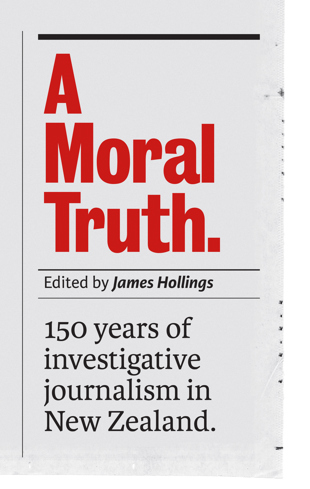Compiling A Moral Truth would have required its own kind of investigation, tracking down the articles you include. How did you choose them? There would have been ones you were aware of already and knew you wanted. But what about the others?
It wasn’t easy! There is actually so much great New Zealand investigative journalism to choose from. As you say, some of the famous ones I was aware of already – Pat Booth, for example. I did a lot of asking around, especially of older, and retired journalists, who have so much knowledge of earlier eras.
There’s some good secondary sources on journalism in New Zealand, which would often mention a story in passing, and I’d think that sounds interesting, I’ll have a look at that. The Te Hokioi pieces, for example, were mentioned in Lachy Paterson’s fascinating book on early Maori newspapers, but not as examples of investigative journalism. It was only when I read them that I realised how significant they were. Likewise, some of the early Truth pieces; it was seeking them out and reading them in full, in the original, that helped me choose. Redmer Yska’s great book on Truth was also a big help, as was Te Ara, the wonderful online encyclopedia of New Zealand history. I also searched all the records of journalism prize winners I could find, such as the Dulux Awards, later the Qantas, and now Canon Awards.
For the more recent stuff, I pretty much knew most of what was out there. Once I had a long list, it was matter of whittling it down. I initially went for pieces that had had some definite impact, that idea of investigative journalism as the ‘first draft of legislation’, as it’s sometimes described; that caused some kind of reform. Then I realised that there were some pieces that might not have had that impact at the time, but have been justified in hindsight; take Robin Hyde’s piece on Bastion Point, for example. Pieces which had some kind of moral truth in them. That’s where the title came from – which was my publisher, Nicola Legat’s suggestion, and an inspired one. I think that’s really what sums up what makes these pieces last; they have a real moral integrity to them. They are about things that really matter; the end of capital punishment; freeing the wrongly convicted; violence against children; corruption in government; things that we can all agree really have to be put right.
...
Read the full interview by ARTICLE MAGAZINE here.


